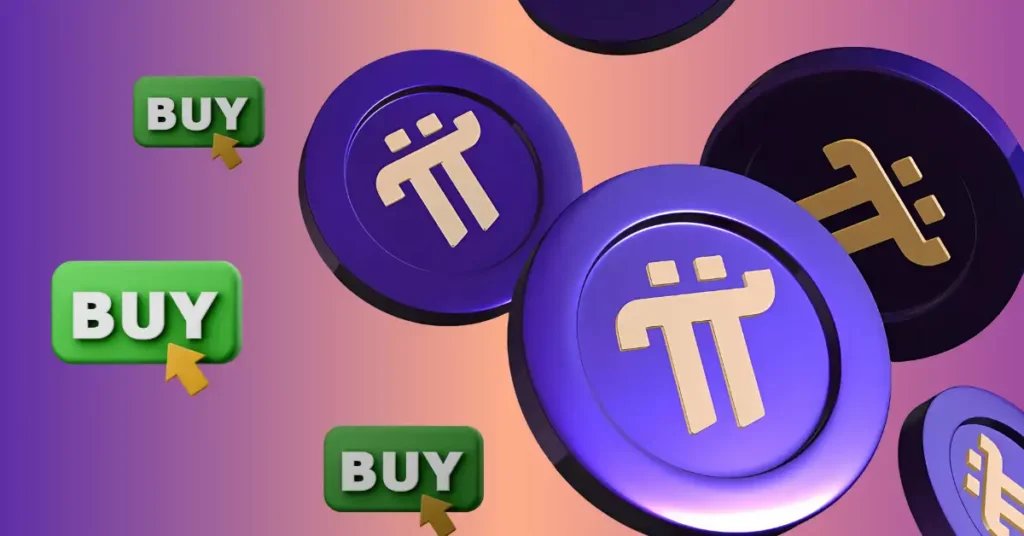
Financial education is crucial for individuals to achieve financial success and independence. Without a solid understanding of financial concepts, individuals may struggle to make informed decisions about their money, leading to financial instability and stress. By educating themselves about topics such as budgeting, investing, and debt management, individuals can take control of their financial future and work towards achieving their goals.
One of the key benefits of financial education is the ability to make informed decisions about money. When individuals understand the principles of investing, for example, they can make strategic decisions about where to put their money to maximize returns. Additionally, financial education can help individuals avoid common pitfalls such as excessive debt or overspending, leading to a more secure financial future. Overall, financial education empowers individuals to take control of their finances and work towards achieving their long-term financial goals.
Financial education also plays a crucial role in promoting economic stability and growth. When individuals are financially literate, they are better equipped to contribute to the economy through responsible spending, saving, and investing. This, in turn, can lead to a more stable and prosperous society as a whole. By promoting financial education at all levels of society, we can work towards creating a more financially secure future for individuals and communities.
Key Takeaways
- Financial education is crucial for making informed decisions about money and building wealth.
- Assets are things that put money in your pocket, while liabilities are things that take money out of your pocket.
- Passive income is the key to achieving financial freedom and building wealth over time.
- The mindset of the rich focuses on creating opportunities and taking calculated risks, while the poor often fear failure and avoid risk.
- Taking calculated risks is essential for building wealth and achieving financial success.
- Entrepreneurship provides the opportunity to create wealth and financial independence through innovation and hard work.
- Applying the lessons of “Rich Dad Poor Dad” can help individuals achieve financial success by changing their mindset and approach to money.
The Difference Between Assets and Liabilities
Understanding the difference between assets and liabilities is fundamental to building wealth and achieving financial independence. Assets are items of value that can generate income or appreciate in value over time, such as real estate, stocks, or businesses. Liabilities, on the other hand, are debts or financial obligations that require regular payments, such as mortgages, car loans, or credit card debt.
Investing in assets is a key strategy for building wealth over time. By acquiring assets that generate income or appreciate in value, individuals can grow their wealth and work towards achieving financial independence. On the other hand, accumulating liabilities can hinder financial progress by requiring regular payments and potentially accruing interest over time.
One of the key differences between assets and liabilities is their impact on an individual’s net worth. Net worth is calculated by subtracting liabilities from assets, and it provides a snapshot of an individual’s overall financial position. By focusing on acquiring assets and minimizing liabilities, individuals can work towards increasing their net worth and building long-term wealth.
The Power of Passive Income
Passive income is income that is earned with little to no ongoing effort, often generated from investments or business ventures. This type of income provides individuals with the opportunity to earn money while they sleep, allowing them to build wealth and achieve financial independence over time.
One of the key benefits of passive income is its ability to provide financial security and stability. Unlike active income, which requires ongoing effort and time to earn, passive income can continue to flow in even when an individual is not actively working. This can provide a sense of security and peace of mind, knowing that there is a steady stream of income regardless of whether an individual is working or not.
Passive income also provides individuals with the opportunity to build wealth over time. By investing in income-generating assets or starting a business that can operate without constant oversight, individuals can create a source of passive income that grows and compounds over time. This can lead to increased financial freedom and the ability to pursue other interests and passions without being tied to a traditional 9-5 job.
The Mindset of the Rich vs. the Poor
“`html
| Aspect | The Rich | The Poor |
|---|---|---|
| Financial Goals | Focus on wealth accumulation | Focus on making ends meet |
| Attitude towards risk | Embrace risk for potential high returns | Avoid risk to protect what little they have |
| Investment mindset | Long-term and diversified investments | Short-term and limited investments |
| Education | Continuous learning and self-improvement | Education may not be a priority |
| Spending habits | Invest in assets and experiences | Spending on immediate needs and wants |
“`
The mindset of the rich versus the poor plays a significant role in determining an individual’s financial success. Rich individuals often have a mindset focused on abundance, opportunity, and long-term thinking, while poor individuals may have a mindset focused on scarcity, limitations, and short-term thinking.
Rich individuals tend to see opportunities where others see obstacles. They are willing to take calculated risks and invest in themselves and their future. They understand the value of delayed gratification and are willing to make short-term sacrifices for long-term gain. Additionally, rich individuals often have a growth mindset, believing that they have the ability to learn and grow over time.
On the other hand, poor individuals may have a mindset focused on limitations and scarcity. They may be more risk-averse and hesitant to invest in themselves or take on new opportunities. Poor individuals may also have a fixed mindset, believing that their circumstances are unlikely to change regardless of their efforts.
The Role of Risk-Taking in Building Wealth
Risk-taking plays a crucial role in building wealth and achieving financial success. While taking risks inherently involves the potential for failure or loss, it also presents opportunities for growth, learning, and financial gain. By taking calculated risks, individuals can position themselves for long-term success and create opportunities for wealth accumulation.
One of the key benefits of risk-taking is the potential for high returns. Investments with higher levels of risk often have the potential for higher rewards, allowing individuals to grow their wealth at a faster rate than more conservative investments. Additionally, taking risks can lead to personal growth and development as individuals learn from their experiences and adapt their strategies over time.
While risk-taking is an important component of building wealth, it is essential for individuals to approach it with careful consideration and planning. Taking unnecessary or uninformed risks can lead to significant financial loss, so it is crucial for individuals to conduct thorough research and seek professional advice when considering investment opportunities or entrepreneurial ventures.
The Value of Entrepreneurship

Entrepreneurship plays a crucial role in creating opportunities for wealth accumulation and economic growth. By starting a business or pursuing entrepreneurial ventures, individuals have the opportunity to create value, generate income, and build long-term wealth for themselves and their communities.
One of the key benefits of entrepreneurship is the potential for unlimited earning potential. Unlike traditional employment, where income may be limited by salary or hourly wages, entrepreneurs have the opportunity to create income streams that are not bound by traditional constraints. This allows individuals to build wealth at a faster rate and achieve financial independence over time.
Entrepreneurship also provides individuals with the opportunity to pursue their passions and create value in their communities. By identifying unmet needs or opportunities for innovation, entrepreneurs can create businesses that provide solutions and improve the lives of others. This not only creates economic value but also contributes to the overall well-being of society.
Applying the Lessons of Rich Dad Poor Dad to Achieve Financial Success
The lessons from Rich Dad Poor Dad provide valuable insights into achieving financial success and independence. By applying the principles outlined in the book, individuals can work towards building wealth and creating opportunities for long-term financial security.
One of the key lessons from Rich Dad Poor Dad is the importance of financial education. By educating themselves about money management, investing, and entrepreneurship, individuals can take control of their financial future and work towards achieving their goals. Additionally, the book emphasizes the value of assets over liabilities and the power of passive income in creating opportunities for wealth accumulation.
Another important lesson from Rich Dad Poor Dad is the mindset shift from being an employee to being an investor or entrepreneur. By adopting a mindset focused on abundance, opportunity, and long-term thinking, individuals can position themselves for success and create opportunities for wealth accumulation. Additionally, taking calculated risks and pursuing entrepreneurial ventures can lead to personal growth and financial gain over time.
In conclusion, achieving financial success requires a combination of education, mindset shifts, risk-taking, and entrepreneurship. By understanding the principles outlined in Rich Dad Poor Dad and applying them to their own lives, individuals can work towards building wealth and creating opportunities for long-term financial security and independence.
If you’re interested in learning more about personal finance and investing, you may want to check out this article on BuyZoneReview.com. It provides a comprehensive review of “The Intelligent Investor” by Benjamin Graham, which is another influential book in the world of finance and investing. BuyZoneReview.com offers valuable insights and analysis that can complement the principles and lessons discussed in “Padre Rico Padre Pobre.”
FAQs
What is the book “Padre Rico Padre Pobre” about?
The book “Padre Rico Padre Pobre” (Rich Dad Poor Dad) is a personal finance classic written by Robert Kiyosaki. It discusses the differences in mindset and financial habits between Kiyosaki’s “rich dad” and “poor dad” and offers insights on how to achieve financial independence.
Who is the author of “Padre Rico Padre Pobre”?
The author of “Padre Rico Padre Pobre” is Robert Kiyosaki, an entrepreneur, educator, and investor. He is best known for his work in the personal finance and self-help genres.
What are some key lessons from “Padre Rico Padre Pobre”?
Some key lessons from “Padre Rico Padre Pobre” include the importance of financial education, the difference between assets and liabilities, the value of taking calculated risks, and the mindset shift required to achieve financial independence.
Is “Padre Rico Padre Pobre” suitable for all ages?
“Padre Rico Padre Pobre” is generally suitable for adult readers, as it deals with complex financial concepts and personal development. However, some of the principles and lessons may be applicable to younger readers as well.
Has “Padre Rico Padre Pobre” been translated into other languages?
Yes, “Padre Rico Padre Pobre” has been translated into multiple languages and has been widely read and acclaimed internationally.


